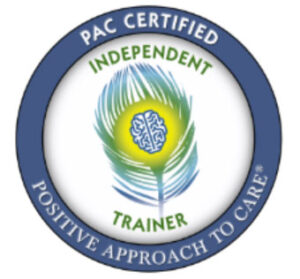Building Your Care Team
By Kristine Dwyer, LSW
Life was significantly changing in the home of Helen’s parents. Her father’s tremors had increased and his falls had become more frequent in recent weeks. He also had difficulty sleeping and caring for his personal needs. His Parkinson’s disease was noticeably taking its toll on Helen’s mother as well. She was weary from a lack of sleep and unable to fully care for her husband’s needs anymore. Her own health was in jeopardy as she faced high blood pressure and she had injured her back while attempting to lift her husband after a fall. Suddenly, Helen found herself providing care to both of her parents! It seemed as if their lives were unraveling and Helen knew she couldn’t handle this crisis all alone. Her siblings lived out of the area and seemed unaware of their parent’s urgent needs. Helen felt very much alone and was unsure what to do first or whom to call for help.
No matter how well intentioned, caregiving for a loved one can be quite challenging. Too often the responsibilities land on the shoulders of one individual, either by choice or default. Whether the care receiver is a parent, spouse, adult child or sibling, upholding the total weight of a loved one’s needs can take its toll on even the strongest of caregivers. That’s why it is vital for a caregiver to build a care team and form a circle of support.
The concept of building a care team is not new, yet many families and caregivers are unaware of its importance to their respective roles. Planning the team should begin as soon as it’s apparent that an individual is in need of care.

Family Meeting to Discuss Care Team
First, make a list of those individuals who can join the care team and contribute to its success. The following list of team players can get you started:
Secondly, plan a family meeting to evaluate the caregiving situation and discuss any concerns. Quite likely, each family member has a skill or ability to contribute. Discuss which member is best equipped to handle specific needs. For example, those with financial skills can assist with monetary guidance, and those in the legal field can provide expertise in taking care of wills, health care directives and estate planning. Other members may possess organizational skills, have home repair experience or are able to offer personal care assistance. Long distance family members can make phone calls, send emails or letters to the caregiver and care receiver to boost their morale. Perhaps they could contribute toward hiring housekeeping or chore services. All members should be urged to collectively contribute what each is capable of giving to the family.
Thirdly, consider the family dynamics and how this may influence the caregiving scenario. One common mistake is to presume that everyone is comfortable with and responsible for giving personal care, cleaning or handling finances. This assumption has caused many family members to distance themselves when help is needed and can bring about family disharmony. Hopefully a family meeting can bring everyone together to pool their resources and agree on a plan of care.
Lastly, consult the professionals and seek the support and skills from people outside of the family. The physician and his/her staff will offer the necessary medical guidance to care for an individual. Pharmacists can answer questions regarding medication usage and interactions. Clergy and church members can offer spiritual guidance and perhaps assistance with occasional meals or transportation. Neighbors and friends often are willing to help decrease social isolation as well as provide respite care to allow the caregiver a much needed break. Adult day staff can propose a respite and activity plan and give support. A caregiver consultant can provide resources, education and even act as a family mediator, thus encouraging families to work together for everyone’s benefit. Counselors or therapists are available to help with emotional needs and can assist the caregiver in sorting out feelings to gain perspective. Home care agencies offer certified and licensed staff to provide custodial and skilled care services. Medical organizations that address Parkinson’s disease, Alzheimer’s disease, cancer, etc., should also be contacted for information and support groups.
As one can see, there are many benefits to building a strong, multi-faceted care team, one step at a time. Communication, cooperation, and forming partnerships within the family and the community can all promote and support a successful caregiving experience.
Source: www.caregiver.com

